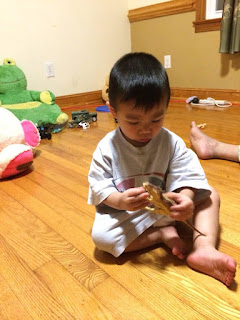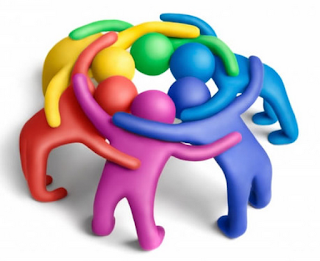THE FIVE QUESTIONS
QUESTIONS AND ANSWERS: Although, I have been browsing this sight since the beginning. There is still so much I had not browsed and when I look through the links I have not clicked at all due to there being so many of them to browse. Zero to three is a very large site with hundreds of different areas to search one link can take you a lot of different places of interest, so I went on a scavenger hunt of links I have not browsed.
I had not clicked on careers, but was truly enlightened about the resources that are available for professionals looking for employment in the Early Childhood Field. Resume building, coaches, and job notices for jobseekers are readily available. An email sign up is required as well as necessary in order to receive notices when looking for a particular position. I also clicked on Mental Health for infants and toddlers and was amazed at the information found on infants and toddlers Mental Health. Reading about the Mental Health of an infant or toddler at such a young age, I was totally engrossed. Nevertheless, because of them being so small there mental health did not really occur to me because they are so very young, Therefore, I had to remember that the brain develops while in the womb, so why not? I had to tell myself every time I interact with an infant I am doing serve and return which contributes to either healthy or not healthy mental stability of the infants in my care. At the same time I browsed safe babies this link gave plenty of information on neglect and how the courts our trying to put children back with their families and promote continuous healthy development, The social services monitors these families on a regular basis to be sure these babies are still safe as they grow. In some states these children get free access to early education whether it is daycare, Head Start or Pre-K so the mother can look for jobs, go for treatment of a drug problem or just because they might be dealing with depression, but all of these things are double checked, and in my opinion sometimes single moms fathers and families need this kind of help because some parents need that extra push. I went back to advocacy and policy and under child care policy there is plenty of information about quality early education and people needing access to quality early education programs in their communities. These are two subjects we discussed this week. However, if you scroll to the bottom you will see information on why having access to a quality early education is so important. For one thing, a child having access to programs of good quality will lessen their chance of dropping out of school, higher IQ's and possibly will continue their education Throughout their positive education journey, it will enhance healthy growth in to independent adults, which in the long run will improve our society tremendously because it will decrease welfare dependency and help our large poverty situation. As I continued to browse I found an area where I was able to post a question to the debate on Sunday of this week. My question was Since there is so much proven research about the brain architecture not developing healthy when children and their families do not have access to quality education or daycare . so why not make it free and mandatory for all early learners to have free access to Early Education. Yes it does have a newsletter, but this month it led to Rally for Babies.
The 2016 Presidential campaign is already in high gear, but in all
the speeches and debates, we don’t hear much about babies and their
families. Yet, young families face pressing challenges—working hard to
feed, clothe, and house their children, finding affordable, quality
child care, and setting aside precious time to nurture their children’s
development. Families want to know how the next President will support
their efforts to contribute to the economy and the next generation.
The nearly four million babies born in the U.S. every year represent the future of our country—our future workforce, parents, leaders, and innovators. How we invest in their health and well-being will determine our nation’s long-term productivity and success.
What do the 2016 presidential candidates believe is the best way to ensure these critical assets thrive?
The nearly four million babies born in the U.S. every year represent the future of our country—our future workforce, parents, leaders, and innovators. How we invest in their health and well-being will determine our nation’s long-term productivity and success.
What do the 2016 presidential candidates believe is the best way to ensure these critical assets thrive?
Will you ask them?
It’s time to make our voices heard with all of the presidential candidates as we continue to #Rally4Babies.
Help us use Twitter to ask them these pressing questions. It’s easy!
Click the candidate’s name at whom you want to tweet, select the
question you want to ask, and click on the tweet. The tweet will pop up
in your Twitter account and all you do is click “Post tweet.” Make sure
all your tweets use the hashtag #Rally4Babies to really raise a ruckus for babies and their families.
Click a candidate below to send a tweet to...
Select a tweet to send…
- Tweet: .@hillaryclinton Half of US #babies & #toddlers live below/near #poverty. What will u do to address poverty’s effect on them? #Rally4Babies
- Tweet: .@hillaryclinton 1 in 4 US #babies/#toddlers lives in #poverty. How would you address poverty’s terrible effects on them? #Rally4Babies
- Tweet: .@hillaryclinton Bipartisan voters strongly support #paidleave. How would u ensure ALL workers can afford time off w/ babies? #Rally4Babies
- Tweet: .@hillaryclinton Do you support #paidleave for ALL workers? Dem and Rep voters do. What’s your plan? #Rally4Babies
- Tweet: .@hillaryclinton Polls show voters care more abt #ECE than #jobs/#economy. What’s your plan 4 affordable, quality #childcare? #Rally4Babies
- Tweet: .@hillaryclinton What’s your plan to ensure parents can find quality, affordable #childcare for babies? HUGE issue for voters. #Rally4Babies
- Tweet: .@hillaryclinton Research shows #babies/#toddlers experience the (-) effects of traumatic events. How would you support them? #Rally4Babies
- Tweet: .@hillaryclinton Traumatic events, like abuse/neglect & family stress, harm #babies/#toddlers. How would you help them? #Rally4Babies
- Tweet: .@hillaryclinton From #childcare to #healthcare, how would you help #MilitaryFamilies transition more easily to civilian life? #Rally4Babies
- Tweet: .@hillaryclinton What’s your plan to help #MilitaryFamilies transition to civilian life such as w/ #childcare & #healthcare? #Rally4Babies
MENTAL HEALTH IN INFANT/TODDLERS
In 1994, ZERO TO THREE published its groundbreaking manual, DC:0–3 Diagnostic Classification of Mental Health and Developmental Disorders of Infancy and Early Childhood.
The first developmentally based system for diagnosing mental health and
developmental disorders in infants and toddlers, this critically
important guide quickly became an indispensable resource for mental
health clinicians, counselors, physicians, early interventionists,
educators, and researchers, and established ZERO TO THREE as a leading
authority in the field of infant mental health.
The new DC:0–5™ and associated ZERO TO THREE DC:0–5™ Training build
on this powerful legacy using the latest scientific findings and
clinical research. ZERO TO THREE is the only official training provider
for DC:0–5™. We will begin offering training in early 2017. Make your
plans today.
Developmentally Based Diagnosis
Charles H. Zeanah, Jr., MD (Chair)
Sellars Polchow Chair in Psychiatry
Vice Chair, Child & Adolescent Psychiatry
Tulane University
Alice S. Carter, PhD
Professor and Director of the Graduate Program in Clinical Psychology
Department of Psychology
University of Massachusetts Boston
Helen Link Egger, MD
Associate Professor
Chief, Division of Child and Family Mental Health and Developmental Neuroscience
Director, Integrated Pediatric Mental Health
Center for Developmental Epidemiology
Department of Psychiatry and Behavioral Sciences
Duke University Medical Center
Mary Margaret Gleason, MD, FAAP
Assistant Professor, Tulane University School of Medicine Psychiatry and Behavioral Sciences
Director of Tulane Infant Mental Health Services
Miri Keren, MD
Child and Adolescent Psychiatrist
Director of Infant Mental Health and of Infant Psychiatry Course
Tel Aviv University Sackler School of Medicine and Geha Mental Health Center
Consultant at Schneider Children Hospital in Israel
President, World Association for Infant Mental Health
Alicia F. Lieberman, PhD
Irving B. Harris Endowed Chair for Infant Mental Health
Professor and Vice Chair for Academic Affairs
University of California at San Francisco Department of Psychiatry
Director, Child Trauma Research Project
San Francisco General Hospital
DC:0–5™ Diagnostic Classification of Mental Health and Developmental Disorders of Infancy and Early Childhood
captures new findings relevant to diagnosis in young children and
addresses unresolved issues in the field since DC:0–3R was published in
2005. DC:0–5™ is designed to help professionals in mental health and other/related fields:
Individuals across disciplines—mental health clinicians, counselors, physicians, nurses, early interventionists, social workers, and researchers—will find DC:0-5™ to be an essential guide to evaluation and treatment planning with infants, young children, and their families, in a wide range of settings.
- Recognize mental health and developmental challenges in infants and children from birth through 5 years old
- Understand that relationships and psychosocial stressors contribute to mental health and developmental disorders, and incorporate contextual factors into the diagnostic process
- Use diagnostic criteria effectively for classification, case formulation, and intervention
- Facilitate research on mental health disorders in infants and young children
- Available since December, 2016, from the ZERO TO THREE Bookstore.
Individuals across disciplines—mental health clinicians, counselors, physicians, nurses, early interventionists, social workers, and researchers—will find DC:0-5™ to be an essential guide to evaluation and treatment planning with infants, young children, and their families, in a wide range of settings.
What’s New in DC:0–5™?
- Includes disorders occurring in children from birth through 5 years old
- Criteria extended to younger ages when appropriate, including, in some cases, to the first year of life
- Introduces discussion of several new disorders, including:
- Relationship-Specific Disorder of Early Childhood
- Dysregulated Anger and Aggression Disorder of Early Childhood
- Atypical Social-Communication Emergent Neurodevelopmental Disorder
- Retains the multi-axial system, allowing optimal consideration of context in assessment and diagnosis; most axes revised substantially
The Task Force Members
Diagnostic Classification Revision Task Force Members
Sellars Polchow Chair in Psychiatry
Vice Chair, Child & Adolescent Psychiatry
Tulane University
Professor and Director of the Graduate Program in Clinical Psychology
Department of Psychology
University of Massachusetts Boston
Associate Professor
Chief, Division of Child and Family Mental Health and Developmental Neuroscience
Director, Integrated Pediatric Mental Health
Center for Developmental Epidemiology
Department of Psychiatry and Behavioral Sciences
Duke University Medical Center
Assistant Professor, Tulane University School of Medicine Psychiatry and Behavioral Sciences
Director of Tulane Infant Mental Health Services
Child and Adolescent Psychiatrist
Director of Infant Mental Health and of Infant Psychiatry Course
Tel Aviv University Sackler School of Medicine and Geha Mental Health Center
Consultant at Schneider Children Hospital in Israel
President, World Association for Infant Mental Health
Irving B. Harris Endowed Chair for Infant Mental Health
Professor and Vice Chair for Academic Affairs
University of California at San Francisco Department of Psychiatry
Director, Child Trauma Research Project
San Francisco General Hospital
-
QUALITY AND ACCESS
America’s Future Depends on Quality Child Care Info graphics
Learn more about the state of quality child care for babies in America and the critical components needed to ensure progress and success for young children now and well into their futures.
1255 23rd Street, NW
Suite 350
Washington, DC 20037





Wow! what a great post with so much information. I am very interested in the Zero to Three organization as I have heard so many good things about it, including the things you have shared in your post. I think it is a wonderful organization and it helps advocate for so many families and children. I will definitely be looking into this organization further. Thank you for such an informational post!
ReplyDelete